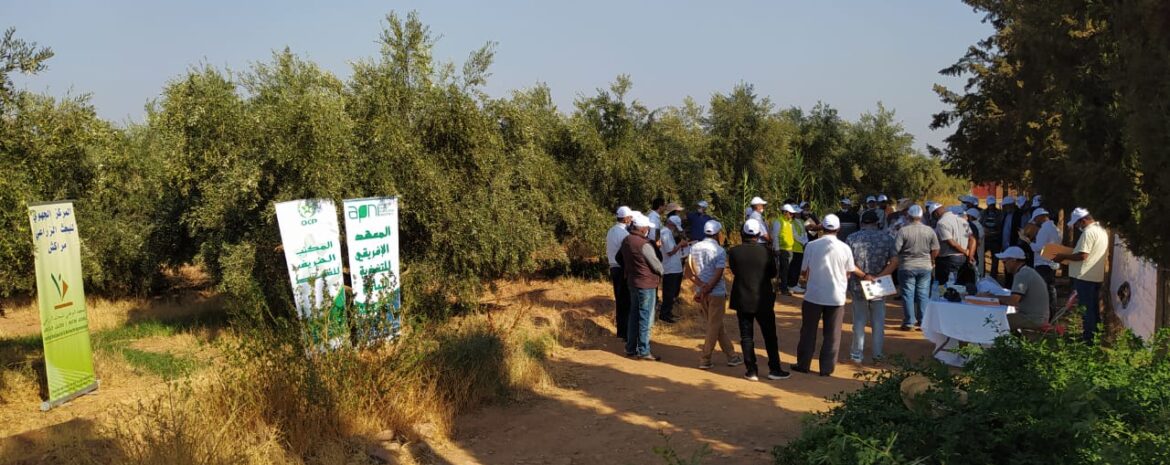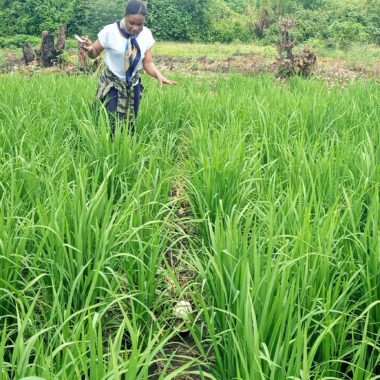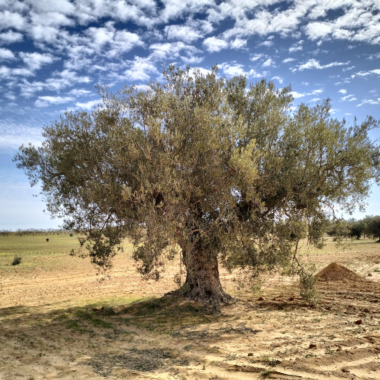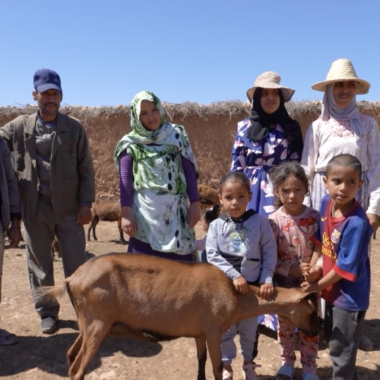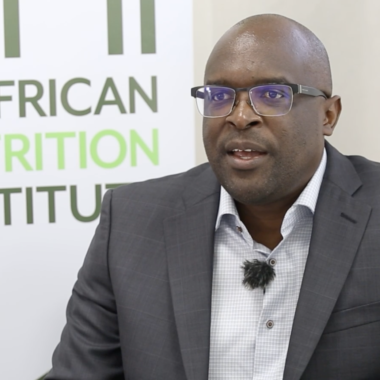Nutrient Management and Climate Change Mitigation for Olive: Moroccan farmers learn about the connection
Olive farmers in El Haouz gathered to learn more about the benefits of making the transition towards improved nutrient management strategies.
Olive farmers in Morocco face a steady threat from climate change. As they look towards a future of extended periods of severe drought and heat, it is increasingly apparent that the day-to-day management of their farms needs to adapt. Farmers need practical solutions that can make a direct impact on their crop productivity and long-term resilience of their farms.
In collaboration with INRA Marrakech and the Al Moutmir program of OCP, APNI recently organized a field day at El Haouz Province to continue the discussion with one group of farmers about how improved nutrient management can help to mitigate against the effects of climate change. Local extension agents, who play a key role in the transfer of technology to the farmer’s field, were also invited to participate in this hands-on learning opportunity.
The group benefited from regional experts from INRA and Al Moutmir. APNI’s scientific team included Dr. Kaushik Majumdar, Director General, Dr. Shamie Zingore Director of Research, and Dr. Hakim Boulal, Program Manager for North Africa, and Leader of the Climate-and weather-smart plant nutrition strategic research theme for APNI.
Our focus for this event was improved nutrient management based principally on best management practices related to fertigation and foliar analysis,” explains Dr. Boulal.
The field day was an opportunity for participants to gain practical knowledge that they can immediately take back to their fields. APNI also distributed support brochures on nutrient management and symptoms of nutrient deficiency in olive.
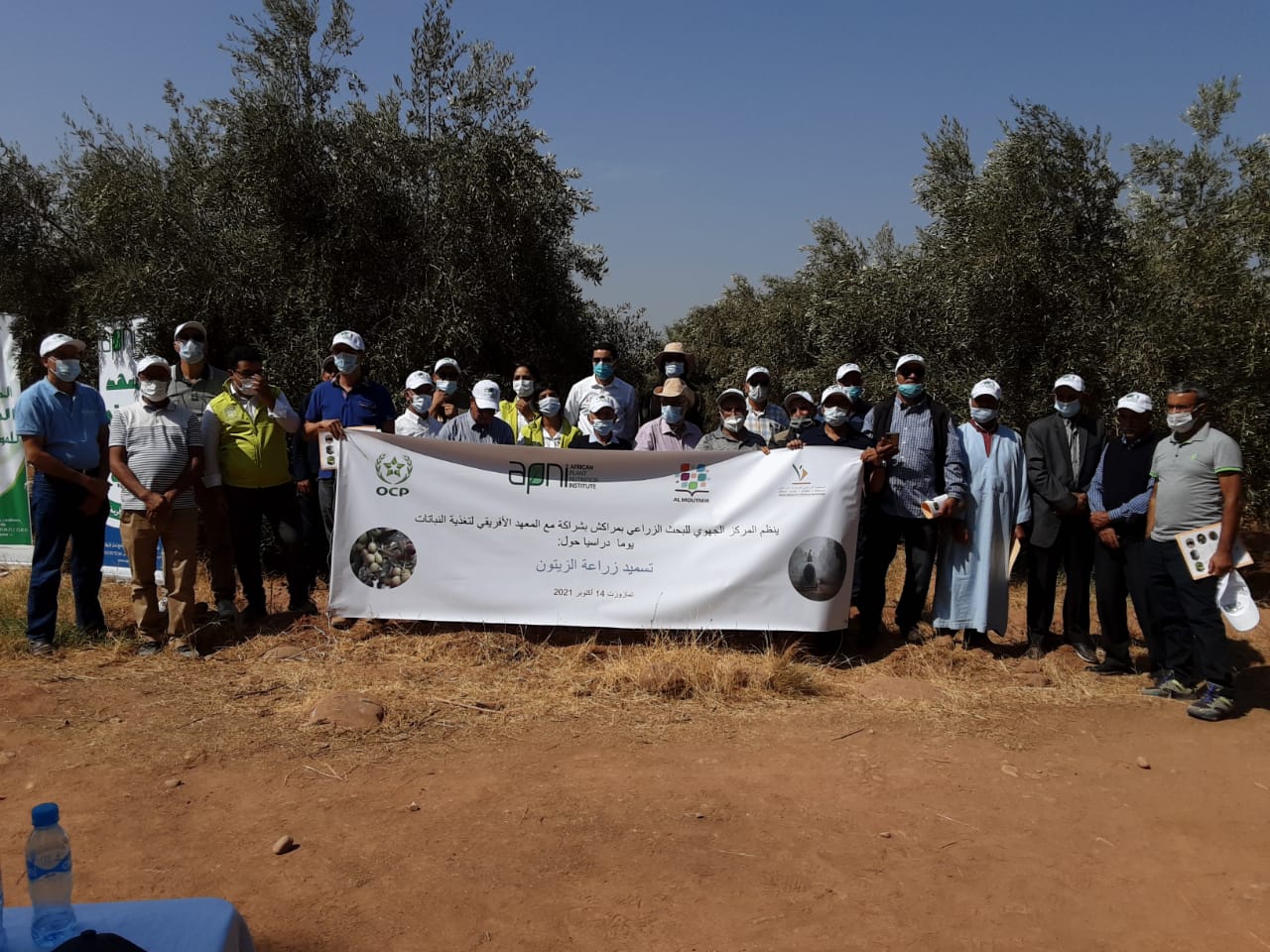
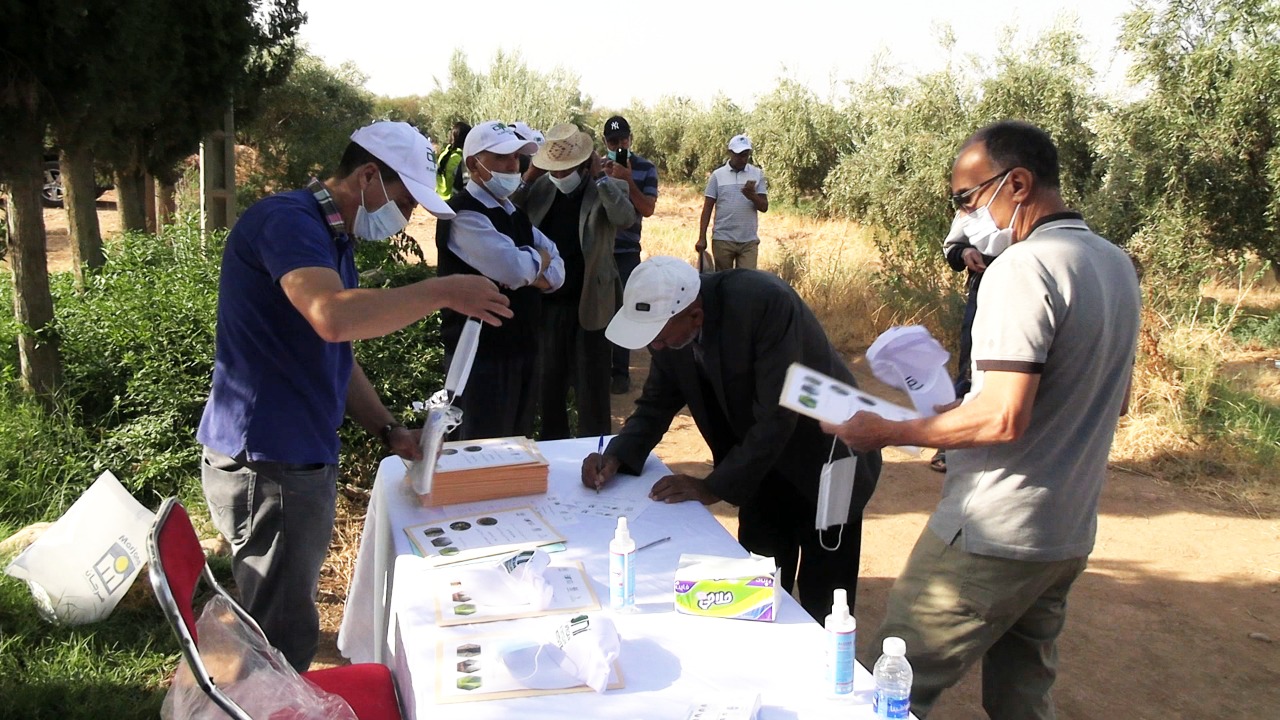
El Haouz field day event as covered by AlFilahya TV
“Farmers are very interested in the process of transitioning away from traditional irrigation and fertilization systems, explains Dr. Boulal. “In this event we were able to provide access to expert advice on the latest knowledge and technology on drip irrigation methods that can incorporate highly efficient foliar fertilization methods based on fertigation.”
The group came away with a new awareness on the types of improved fertilization technologies that are being used today as well as those that are being developed for the future.
“Farmers see the new potential for olive and olive oil production compared to their current management and come away motivated to make a change,” said Dr. Boulal.
Experts from APNI, INRA and Al Moutmir were able to use the field day opportunity to connect with farmers and introduce the prospects and issues related to transitioning towards a more climate-smart approach to olive production.
###
Contributors: Gavin Sulewski, APNI Editor; Dr. Hakim Boulal, Program Manager for North Africa, and Leader of the Climate-and weather-smart plant nutrition strategic research theme for APNI.

